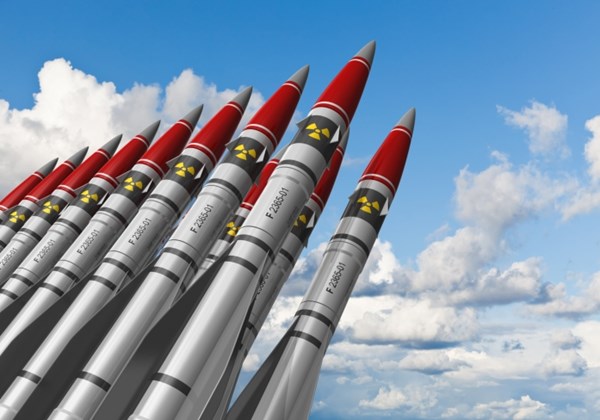U.S. gives Russia ultimatum during nuclear missiles talks
The global nuclear-weapon control system established in the last years of the Cold War is moving steadily towards collapse.
The U.S. de facto gave the Russian side an ultimatum in negotiations on the fate of the Strategic Offensive Reductions Treaty (START-3), the last existing agreement limiting the number of nuclear warheads on both sides.
The treaty signed in 2010 by Barack Obama and Dmitry Medvedev expires in February 2021.
Washington is proposing that Russia, as soon as possible, before the November U.S. elections, sign a presidential memorandum, which will enshrine the basic terms for the extension of the treaty, the White House Special Presidential Envoy for Arms Control, Marshall Billingslea told the Russian newspaper Kommersant.
If that doesn't happen, "after Trump is re-elected, the "entry fee," as we say in the U.S., will go up," he warned.
If no extension agreement is reached, "we are quite happy to continue the modernization of nuclear forces without restrictions," Billingslea said.
The U.S. insists that the updated START treaty should include China, which, according to the Stockholm International Peace Research Institute, is building its arsenal at a record speed among all nuclear powers.
By the end of 2019, the number of nuclear warheads available to China increased by 30 and reached 320. As a result, China for the first time in its history rose to the third place among the countries of the world in this indicator, overtaking France. The latter had a 10-year reduction in the number of warheads, amounting to 290.
The U.S. reduced its nuclear arsenal by 385 warheads, to 5,800, and Russia by 125, to 6,375.
According to SIPRI, Moscow remains the leader in the number of available strategic warheads, but lags behind the United States, if only warheads in operational readiness are considered - 1570 vs. 1750.
Russia, in turn, demands that the treaty be joined by American allies - France and Britain, and the U.S. nuclear weapons would be removed from Europe.
Washington rejects these terms. "Neither Great Britain nor France is increasing their nuclear arsenals. China is actively developing and deploying its nuclear weapons," Billingslea explained.
He added that the U.S. nuclear forces will remain in Europe, just like the Russian missiles. The U.S. does not demand the withdrawal of warheads and missile systems from Kaliningrad.
Russia considers the American demands an "ultimatum" and the Kremlin does not intend to carry out discussions in this manner, Deputy Foreign Minister Sergei Ryabkov told TASS.
"These are all ultimatums that reduce the possibility of any agreement," he said, adding that Russia "take care of its own security in the best possible way, including with the development of strategic deterrence forces."
"In a number of areas, our developments and our achievements in the military sphere are superior to the American ones, as was also mentioned," Ryabkov said.
